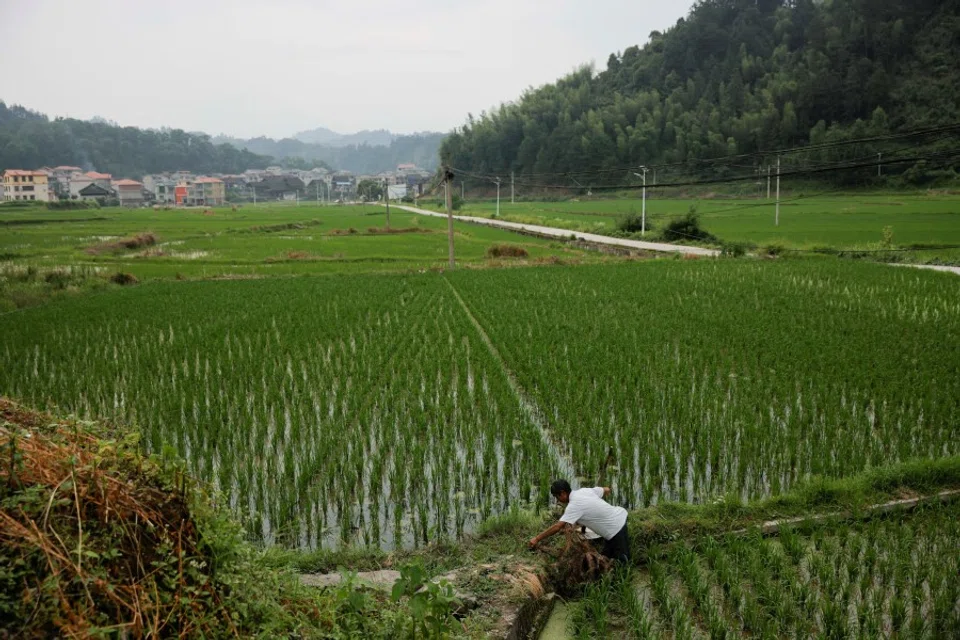Governing modern Chinese villages is a big challenge
Chinese academic Hu Ying notes that rural governance in China is facing new and diverse sets of challenges. While traditional rural governance looks after people's need for money, food and to protect their livelihoods, current rural issues could include the provision of public services, targeted poverty alleviation, land management and ecological protection. Not only that, traditional value systems are now a thing of the past as villagers gain an increased awareness of individual rights. The authorities would need different skills, and to be supported by new social structures in order to do their job well.

The case of the chained mother of eight in Feng county has turned the spotlight once again on problems with rural governance in China.
After over 40 years of reform and opening up, China's rural economy and society have seen a series of transformations. The fundamentals of social governance in rural communities have changed, leading to new needs and requirements.
However, the working methods and calibre of some village cadres have not developed in tandem with the huge changes taking place in the internal and external rural affairs of the villages. Amid these changes, rural governance based on traditional rural communities is now obsolete.
... the main issues in rural governance have expanded to public services, targeted poverty alleviation, maintaining social stability, land management, ecological protection, collective economic development and more.
Modern rural issues are different
First, the relationship between urban and rural resource allocation has changed, resulting in major changes in rural governance. In the era of the planned economy, China channelled resources from the villages to serve its industrialisation efforts. However, the abolition of the agricultural tax by 2006 signalled a historic change in urban and rural resource allocation.

In recent years, the central and local governments have invested 3 trillion RMB of the national budget annually into sannong (三农, literally "three farmers"), which encompasses agriculture (农业), farmers (农民) and rural areas (农村), along with increasing different kinds of subsidies.
Traditional rural governance mainly involves "money, food and livelihood" (要钱、要粮、要命), but now the main issues in rural governance have expanded to public services, targeted poverty alleviation, maintaining social stability, land management, ecological protection, collective economic development and more.
A weaker sense of community
Second, rural societies are moving from being closed off to opening up. After years of industrialisation and urbanisation, China's traditional villages have developed differently.
Currently, there are two main types of villages in China. One type is the more developed village where the non-locals outnumber the locals. For example, Huzhailong Village in Jiaodao town, Wuyi county, Zhejiang province, has over 4,500 non-locals, three times the number of people with a local huji (户籍) or household registration. Such villages face the social governance issues that come with having to handle an "inverted" population.
Another type is the village with a population outflow, where there is an exodus of the young, strong labour force, leaving many homes vacant. The grassroots authorities mostly have to deal with the elderly, women and children, while the main body of rural governance is missing. The crumbling economy of the village has weakened the foundation of rural governance. Furthermore, the community lacks cohesiveness and welfare efforts are difficult to coordinate.
The diverse choices in ways to make a living have greatly reduced farmers' dependence on grassroots organisations, and some farmers identify less with the village collective.

Third, there is a weaker sense of community in villages as awareness of individual rights increases. Many farmers are no longer reliant on the land for their economic production and livelihood. The diverse choices in ways to make a living have greatly reduced farmers' dependence on grassroots organisations, and some farmers identify less with the village collective.
In 2015, a policy was launched whereby a family planning or sterilisation certificate is no longer a prerequisite for birth registration. Therefore, to register the birth of a child, there is no need for parents to first visit the village committee to obtain proof of family planning. Thereafter, grassroots officials lost their control over managing additional births in rural areas. Chagrined that they are "ignored when people are having a good time, sought out during bad times, and scolded when situations are handled poorly", village officials are now lamenting that "while cadres put in hard work and sweat, no one raises a thumb".
... it is a tussle to be classified as poor households, while for others, they "sit in the house playing mahjong, lie outside soaking in the sun, and wait for the government to provide a comfortable life".
Change in values
To some extent, the injection of state resources has shifted the balance in rural areas, thus causing villagers' values to shift to the pursuit of benefits. The idea of individual rights is growing among farmers, and the competition for benefits is gradually becoming blatant in some villages. For some, it is a tussle to be classified as poor households, while for others, they "sit in the house playing mahjong, lie outside soaking in the sun, and wait for the government to provide a comfortable life".
China's reform and opening up is also a process of its people shifting from having homogenous values to diverse values. Traditional value systems and ethical concepts are disintegrating, and the new value systems and ethical concepts have not yet been established, so the traditional social logic that holds rural communities together is being broken down.
A few decades ago, farmers would hold big gatherings for major events such as weddings, funerals and births. Now, gifts are also expected for moving house and children going to school, or even a sow having a litter, and the amount of the gifts are getting costlier and costlier as people compete among themselves.

In short, the nature of China's rural communities has changed a lot since reform and opening up, and the difficulties in rural governance are a signal that "the old ways don't work, nobody knows how to use the new ways, tough approaches cannot be used, and soft approaches are of no use" (老办法不管用,新办法不会用,硬办法不能用,软办法不顶用).
Some villages hold meetings to organise meetings, assign tasks in documents, and showcase "results" with work documents and ledgers. As a result, grassroots cadres are stuck in the bureaucracy and become obsessed with formalism, and it is difficult for them to take a comprehensive and in-depth approach in their work for the community.
In particular, for less developed areas, economic opportunities are few, with relatively insufficient resources in grassroots governance. Hence, both traditional and modern governance methods face tremendous challenges. Looking at how grassroots governance is implemented, deeper social issues need to be resolved with the long-term building of social structures.
Related: China's grassroots civil servant and her story battling the Covid-19 pandemic | China's demographic crisis: The farmers should have a say | Lessons for China: The powerful position of the Japanese farming industry | Lifting 'the poorest of the poor' out of poverty in Sichuan: Does poverty alleviation mean uprooting people from their homes? | Chinese villages' failed toilet revolution, clogged ponds and dangerous roads



![[Photos] Fact versus fiction: The portrayal of WWII anti-Japanese martyrs in Taiwan](https://cassette.sphdigital.com.sg/image/thinkchina/3494f8bd481870f7c65b881fd21a3fd733f573f23232376e39c532a2c7593cbc)

